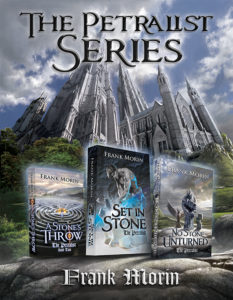Writing can be, and frequently is, easy. At least that first draft is. Sometimes a writer can fall into a creative “zone” and the words will just flow. And flow. And flow. I’ve seen many, many writers post on Facebook how they churned out 2,000, 3,000, even 4,000 words or more in a day.
I can do that. I do it when I really sit down and write.
But the question isn’t how many words you write in a day. The real question is how many words you’ve written in a day, you keep in the final version of the manuscript.
I tend to view writing as similar in concept to sculpting in clay. First you have to get the clay. That’s the first draft. You have to just keep churning out story elements, characters, plot points, settings, all the stuff that makes up a story. It all piles up into a sort of rough facsimile of the story you really want to tell. Eventually you complete the first draft, and can go grab a beer and congratulate yourself on your pile of clay.
But it’s not half done yet. Unless you are one of those truly rare writers who spew out nearly finished prose. Most of those writers have written and published lots of stories, and have learned how to get that first draft much closer to the final form.
The rest of us have to take that first draft and start turning it into something presentable. And that means taking the editor’s sculpting tools and carving off bits here and there, building up other bits, reshaping a limb or a nose… For many of us that is more of a challenge than the initial fountain of words that leaped up from our keyboards.
But sculpting usually takes several passes, each one more detailed, with more attention to perfecting the form and enhancing the presentation of our work. My approach is to take several editing passes through the, I hope, successively less rough drafts of the story. The first pass mostly focuses on big things. Do the character arcs work? Is the conflict compelling? Does the plot work, or are there gaping holes, or plot points leading to nowhere?
Only when I’ve addressed the story at that level will I do a grammar and spelling pass. Or two. It’s all too common for me to learn that in my first pass, I not only missed a few things, but I added some new errors in fixing the previous ones.
Then I do a pass focused entirely on converting passive to active voice, looking for occurrences of words like “seems” or “realized” or many other words I keep in a list that are all too easy to fall back on while writing, but leave the prose flaccid.
Then I do a pass focused on character dialog. Did I use the right vernacular for the different voices of the different characters? Did I accidentally give my New England bookkeeper the voice of a Louisiana shrimper? It happens more than you realize.
Then I do a pass focused on contractions. It always amazes me how many “can not” or “will not” uses I find in my writing. I know better, but I still find them. Lots of them. Trimming those syllables really tightens the text, especially dialog, where a “will not” comes across as pretentious or commanding.
Finally, when all of that is done, I move the still-rough draft to my iPad so I read it in a different format, and do my best to read it as if I had never encountered it before. I might do that three times before I’m satisfied it’s clean enough to pass my editorial expectations.
Then I send it to an editor.




